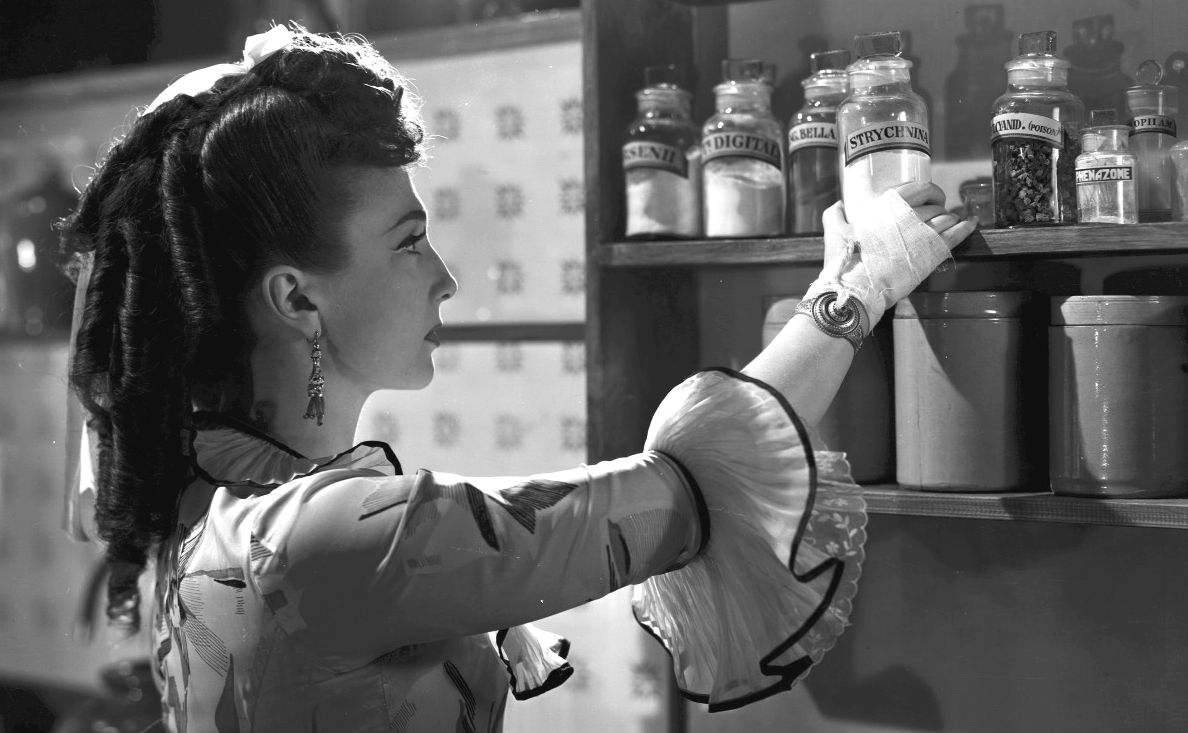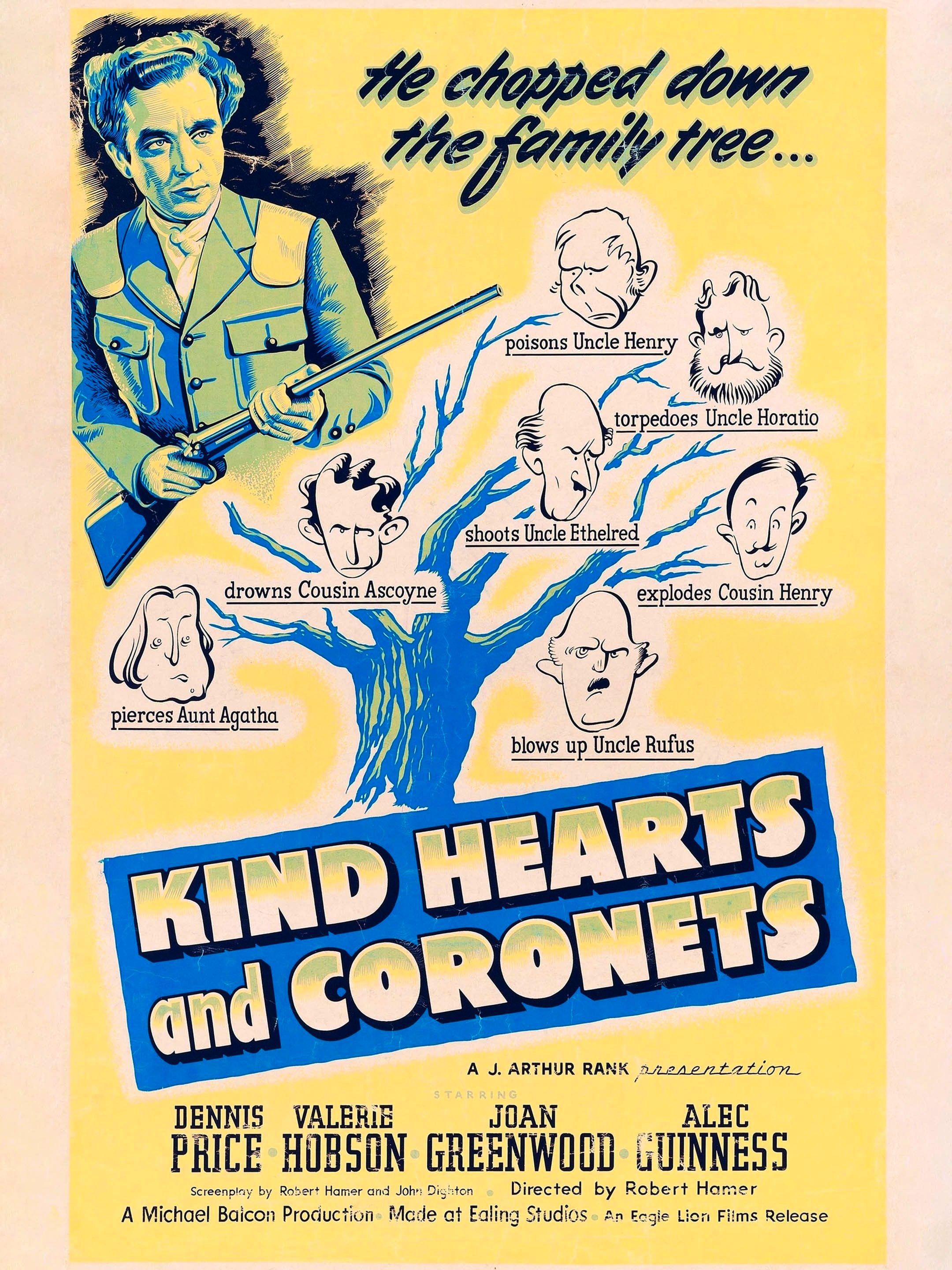"One of the most brilliant, yet wayward directors ever produced by the British cinema, Hamer needed the stabilizing influence of a studio environment to create his best work. While he had that, with Ealing Studios, he made some of the finest and most distinctive films of the post-war years." - David Quinlan (Quinlan's Film Directors, 1999)
Robert Hamer
Director / Screenwriter
(1911-1963) Born March 31, Kidderminster, Worcestershire, England
Top 250 Directors
(1911-1963) Born March 31, Kidderminster, Worcestershire, England
Top 250 Directors
Key Production Country: UK
Key Genres: Drama, Crime, Thriller, Comedy, Crime Drama, Psychological Thriller, Mystery
Key Collaborators: Michael Balcon (Producer), Edward Chapman (Leading Character Actor), Georges Auric (Composer), Googie Withers (Leading Actress), Alec Guinness (Leading Actor), John McCallum (Leading Actor), Joan Greenwood (Leading Actress), Dennis Price (Leading Actor), Harry Waxman (Cinematographer), Douglas Slocombe (Cinematographer), Michael Truman (Editor), Gordon Hales (Editor)
Key Genres: Drama, Crime, Thriller, Comedy, Crime Drama, Psychological Thriller, Mystery
Key Collaborators: Michael Balcon (Producer), Edward Chapman (Leading Character Actor), Georges Auric (Composer), Googie Withers (Leading Actress), Alec Guinness (Leading Actor), John McCallum (Leading Actor), Joan Greenwood (Leading Actress), Dennis Price (Leading Actor), Harry Waxman (Cinematographer), Douglas Slocombe (Cinematographer), Michael Truman (Editor), Gordon Hales (Editor)
"British director, who, on the basis of three and a bit feature films at Ealing in the 1940s, has claims to being one of the distinctive auteurs of British postwar cinema. His signature, as Charles Barr has pointed out, is the mirror worlds played out in The Haunted Mirror episode of Dead of Night (1945), in which a world of dull respectability is undermined by a world in which passion slips from control. In Pink String and Sealing Wax (1945) the world of the chemist shop is mirrored in reverse by the world of the public house. In Kind Hearts and Coronets (1949) the dignified restraint of Louis' commentary is in comic counterpoint to the lust and murder which he is commenting upon." - John Caughie (Encyclopedia of European Cinema, 1995)
"A former editor with a flair for both darkly satirical comedy and even darker British film noir, Robert Hamer was a key figure in postwar British cinema. His sensitive talent was probably best showcased in the handsome and witty period-set comedy of murders, Kind Hearts and Coronets (1949) and the realistic yet superbly moody noir It Always Rains on Sunday (1947). Hamer was also responsible for what some critics consider the best segment in the classic horror anthology, Dead of Night (1945), in which a haunted mirror keeps displaying a murder committed long ago, and which begins to take possession of its new owner." - Turner Classic Movies

Pink String and Sealing Wax (1945)
"Though he was formed and trained in the bosom of Ealing, he was never, even at the outset, a typical Ealing director - his films were always unmistakably his own, whereas most of the others, however excellent their work on a certain level, were in effect interchangeable." - John Russell Taylor (Cinema: A Critical Dictionary, 1980)
"Of his earlier films four are exceptional: It Always Rains on Sunday has an ambitious structure and a true feeling for the East End underworld; Pink String and Sealing Wax is a fond recreation of Victoriana with Googie Withers, again, as a Brighton poisoner; The Spider and the Fly is a gripping study of complicity and duplicity set in France at the beginning of the First World War; Kind Hearts and Coronets is an English classic, with an elaborate but lightly borne scheme of flashbacks… It should be added that Hamer’s career was blighted by alcoholism, and that he now looks like the most serious miscarriage of talent in the postwar British cinema." - David Thomson (The New Biographical Dictionary of Film, 2010)
"Hamer's skills were best put to use in dark thrillers like Pink String and Sealing Wax, It Always Rains on Sunday and the haunted mirror episode in Dead of Night, each of which probed the troubled, repressed and violent passions that seethe beneath the surface of everyday middle-class respectability, with protagonists reacting against a feeling of entrapment and injustice. Sadly, Hamer's heyday was all too short-lived; nevertheless, his finest work is an eloquent reminder that not all postwar British cinema was strait-laced." - Geoff Andrew (The Director's Vision, 1999)
"It’s flattering to make a picture which becomes a classic within 10 years; it’s not so flattering, however, when people get the impression it’s the only picture you’ve ever made." - Robert Hamer
Selected Filmography
{{row.titlelong}}
Robert Hamer / Favourite Films
L'Âge d'or (1930) Luis Buñuel, Crime Without Passion (1934) Ben Hecht & Charles MacArthur, Duck Soup (1933) Leo McCarey, Kameradschaft (1931) G.W. Pabst, The Little Foxes (1941) William Wyler, Niemandsland (1931) Victor Trivas, On the Town (1949) Stanley Donen & Gene Kelly, Rome, Open City (1945) Roberto Rossellini, The Rules of the Game (1939) Jean Renoir.
Source: Cinematheque Belgique (1952)
L'Âge d'or (1930) Luis Buñuel, Crime Without Passion (1934) Ben Hecht & Charles MacArthur, Duck Soup (1933) Leo McCarey, Kameradschaft (1931) G.W. Pabst, The Little Foxes (1941) William Wyler, Niemandsland (1931) Victor Trivas, On the Town (1949) Stanley Donen & Gene Kelly, Rome, Open City (1945) Roberto Rossellini, The Rules of the Game (1939) Jean Renoir.
Source: Cinematheque Belgique (1952)
Robert Hamer / Fan Club
Terence Davies, John Russell Taylor, Peter Bradshaw, Bertrand Tavernier, Martin Scorsese, Matti Kassila, Catherine A. Surowiec, Mike Newell, Philip French, Laurence Kardish, George Perry, Barry Norman.
Terence Davies, John Russell Taylor, Peter Bradshaw, Bertrand Tavernier, Martin Scorsese, Matti Kassila, Catherine A. Surowiec, Mike Newell, Philip French, Laurence Kardish, George Perry, Barry Norman.
"Fan Club"
These film critics/filmmakers have, on multiple occasions, selected this director’s work within film ballots/lists that they have submitted.
These film critics/filmmakers have, on multiple occasions, selected this director’s work within film ballots/lists that they have submitted.


